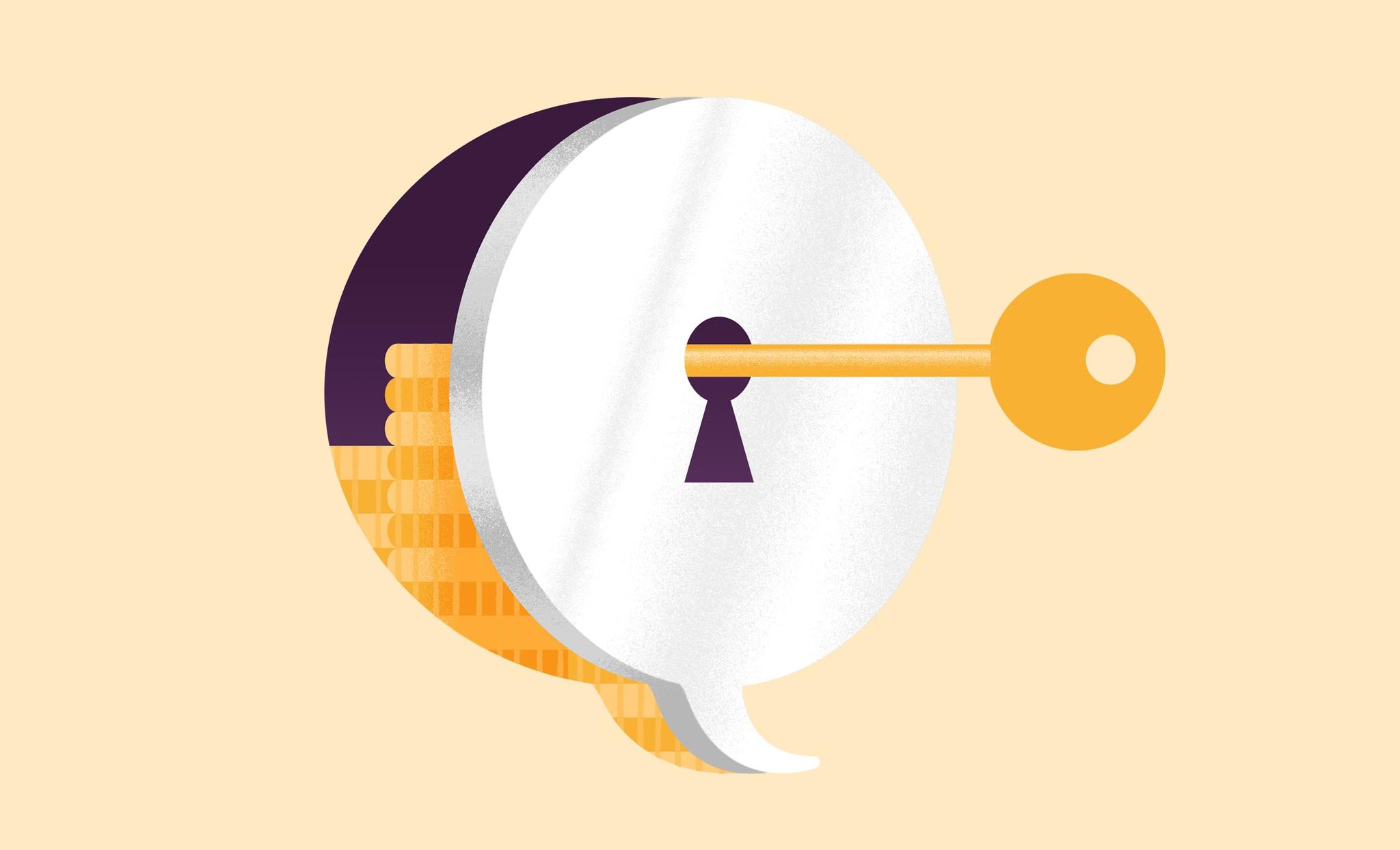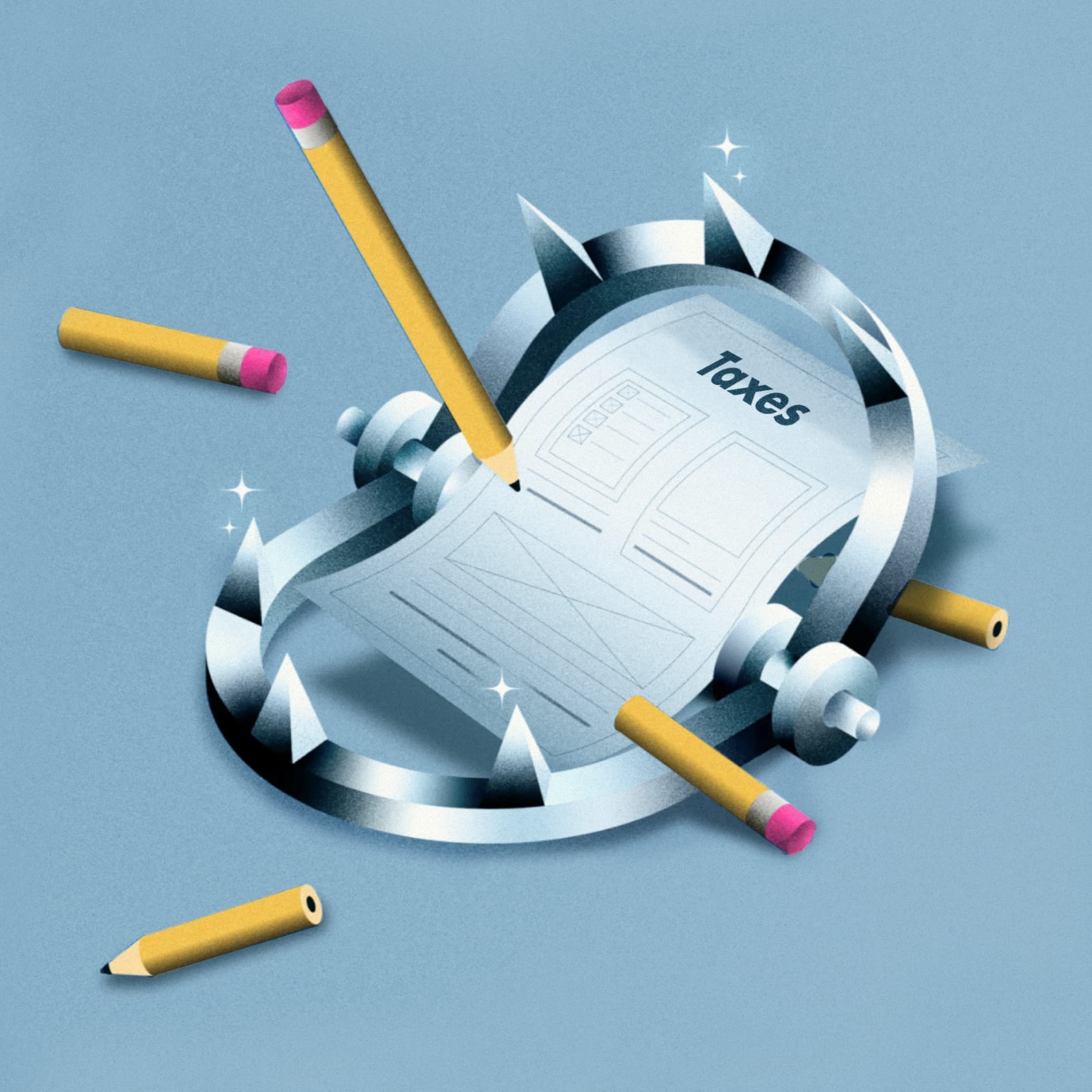
Finance for Humans
How Do I Know if I’m on the Right Financial Track?
Maybe you’ve started — investing, saving. Maybe you’re ready to start. But you’re not sure if you’re doing it right. Here’s our simple guide.
Wealthsimple makes powerful financial tools to help you grow and manage your money. Learn more
This is the latest installment of our “Ask Wealthsimple” series, where our financial guru Dave Nugent helps you navigate the world of investing.
People know they should have a financial plan. And they know they should be saving for their retirement and investing their money and living on a budget that makes sense. But what can be hard for most of us is knowing if we’re doing all of those things right, and if we’re far enough along.
We recently hosted an event in our New York office as part of the Fast Company Innovation Festival. People from all over the place — China to the US to Canada and the UK — came to learn how we build our product and tell our story. After we talked about all the cool stuff we do (which we, at least, think is very cool!), we opened the dialogue up to questions from the assembled.
There were lots of good ones. But one that seemed to encapsulate the worry and practical goals of pretty much everyone: how do I know if I'm on the right track?

Sign up for our weekly non-boring newsletter about money, markets, and more.
By providing your email, you are consenting to receive communications from Wealthsimple Media Inc. Visit our Privacy Policy for more info, or contact us at privacy@wealthsimple.com or 80 Spadina Ave., Toronto, ON.
So we took that question to one of our writers. In exchange for anonymity, he agreed to bare all (or most) to Dave Nugent, Wealthsimple's lead money guru, to help everyone answer that very important question.
Dave, thanks for agreeing to talk to me! I'm a little nervous about this conversation because it's about some things I've been avoiding. And that is namely: how do I know if I'm on the right track in my financial life? Or more accurately: how do I know how far off the right track I am?
Don't be nervous. Some of my most successful clients feel the same way — you'd be surprised. The important thing is that you're asking the question.
Great. I feel better already. So. Where do we start?
One of the first questions I ask people is what their debt situation is.Do you have any high-interest debt? Because that’s something you need to take care of before you do anything else. It’s a real drag on your financial situation.
OK. I’ll level with you. I have about $10,000 on my credit card. I'm always torn between paying off the card now, and putting the money towards my retirement.
My advice to everyone is: you have to get rid of the credit card debt first. It’s the worst form of debt. The interest rate on that debt is most likely about 19% — possibly even higher. Think of it this way: what type of investment can you get a guaranteed rate of return of 20%? Bitcoin’s been going crazy lately, certainly — but 20% guaranteed? The answer is: nothing.
So, first step: attack all of your high-interest debts. That means credit cards, your home equity line of credit and even your student loan debt depending on interest rates. I often tell people that any debts where the rate is 5% or higher is something you need to take care of before you invest. But it depends on your appetite for risk. Some people end up thinking it's better to pay off anything above 4% — that's a conservative way to go. Everyone's best approach is slightly different depending on their risk tolerance and time frame, so that's a good one to check with one of our financial advisors.
OK. So once I’ve cleared my high interest debt — then I just start depositing money in my Wealthsimple retirement account?
Well, as much as we’d love to help you invest your money, the first thing you should do is make sure you have an emergency fund.
What’s an emergency fund? Is it for buying a bunker where I can shelter in place with canned soups once the zombie apocalypse happens?
It’s three months worth of expenses. Imagine you lose your source of income. What would you need to survive? Mortgages, food, school fees, car, etc. If your income is unsteady, six months of expenses is an even better idea.
The point is, you need a little bit of a cushion to keep you afloat until you get back on your feet. You don't want to go into debt or take money out from your retirement account and incur a bunch of penalties for withdrawing early — that will set you back even further.
Great. And I just invest that emergency fund in stocks?
Nope. You want to keep it in something more conservative. Like cash or a cash equivalent. In Canada I’d recommend something like a GIC, and in the U.S. I'd put it in a CD or money market account. It won’t earn a huge return – especially since interest rates are relatively low right now. But it’ll be safe. This isn’t money you’re trying to maximize returns on. It’s cash stuffed somewhere better than a mattress.
Once you've got the emergency fund squared away, it’s time to ask yourself a question: why are you saving?
Well, like with everything else in my life, I'm mostly motivated by fear. I fear that I'm going to finish my career, get old, and, because I haven’t saved enough, be forced to eat cat food and live in a cardboard box. This is what I fear. Doesn’t everybody?
So what you're really asking is, how do I save enough money so when I decide to stop working I get to maintain my lifestyle? And actually enjoy myself?
Yes! That’s a much less fearful way of saying it.
So the first question is what do you have today in terms of savings, if any?
My mom died not too long ago and left me some money. But after talking to you I realize I should use it to pay off my credit card debt. Other than that, I’ve only got $30,000 in my IRA.
What I'd want to know next is the lifestyle you have now — or the one you'd want to have when you retire. That will determine how aggressive you should be with savings. How much income do you make today? And how much income would you want to have when you retire?
Those are two different questions! How much would I
Okay. The next question is: when do you hope to retire?
Again, I’d
A good rule of thumb is that you should be saving 15% of your pre-tax income to set yourself up in a healthy way for retirement. But let’s look at your specific situation. You’re 32 now. You’d like to retire in 33 years. Now let’s assume an average return of 6% per year – which is about what a run of the mill portfolio has earned, historically.
So the important question becomes, what's your number. What do you need to save to get you enough income after you stop working?
Hold on a minute while I do the calculations.
OK. If you save $1,500 a month for the next 33 years, you’ll end up with $2,000,000.
$2,000,000 sounds awesome. Saving $1,500 a month sounds impossible. But please go on.
I understand. Let’s take a step back. Maybe you can only save $500. There would still be other ways to get you closer to your number. One is to try to make a higher rate of return — which comes with risk. Two is if you saved for longer than 33 years, which means retiring later. There's a simple formula a financial planner – like the ones we offer at Wealthsimple — could use to help you play with those variables and come up with a good plan.
For the sake of argument, let’s alter one of the inputs. Let’s say you have $100,000 to start.
Okay. We’re in the realm of fantasy now, but I’m listening.
This is for everyone else reading this. My point is it's a good idea to invest earlier — it makes a huge difference. If you had $100,000, you’d only have to save $1000 per month to reach your $2,000,000 number.
I’m not sure I understand this obsession with $2,000,000.
It’s the Holy Grail for a lot of financial planners. Here’s why. The $2,000,000 becomes, upon retirement, what’s called your principal. That’s the amount of money you have. But every year that money would generate new income – from interest or dividends. And because you’re invested in a diversified portfolio you should be protected from the gyrations of the stock market — so the principal should reliably generate $60,000 in income every year. Assuming a rate of return of 3% — if you want a bigger return than that would you'd incur risk you don't want at that age.
Hold on a second. With this plan that you are suggesting, I can get to a point where I’m retired and this lump of money will throw off enough income so that I won't even have to spend the principal?
Yes. That's the Holy Grail. I call it living free.
But this hypothetical model seems not to be taking into consideration that I may at some point want to buy a house. I live in an expensive place, and anybody I’ve ever known who’s bought a house has no extra money at the end of the month to put away.
My assumption has always been that I could just sell my biggest asset in my old age.
So, the first thing you should know is the stock market has historically grown at a higher rate than real estate. And if you think of your house as your retirement nest egg, then you'll have to figure out where you'll live.
I'm going to move to Florida. Isn’t that where old people go?
People who spend half the year in Florida tend to be people with the means to have multiple homes.
OK, I get it. But wait. I’ve found a flaw in your plan! What happens if I have kids one day? Then all of a sudden you’ll be talking to me about socking money away for their college education. Man, I think I need to lie down.
It might be stressful now, but you’re thinking smart! A big part of creating a roadmap is knowing the roadmap is going to change as you go through changes.
That’s why I tell all my clients: yes, it's important to lay out a plan with an advisor when you start to save. But it's equally important to follow up on it after a life event — whether you get married, have a kid, want to start your own business, or even decide to take a year off.
But don’t worry about predicting the future. Just start with today. Start with deciding how much money you should put away on a regular schedule right now – based on what you want to retire with, and what you can afford. We'd be happy to help.
The crucial part is not to put it off. The most important step is starting today.
Wealthsimple's education team is made up of writers and financial experts dedicated to making the world of finance easy to understand and not-at-all boring to read.









